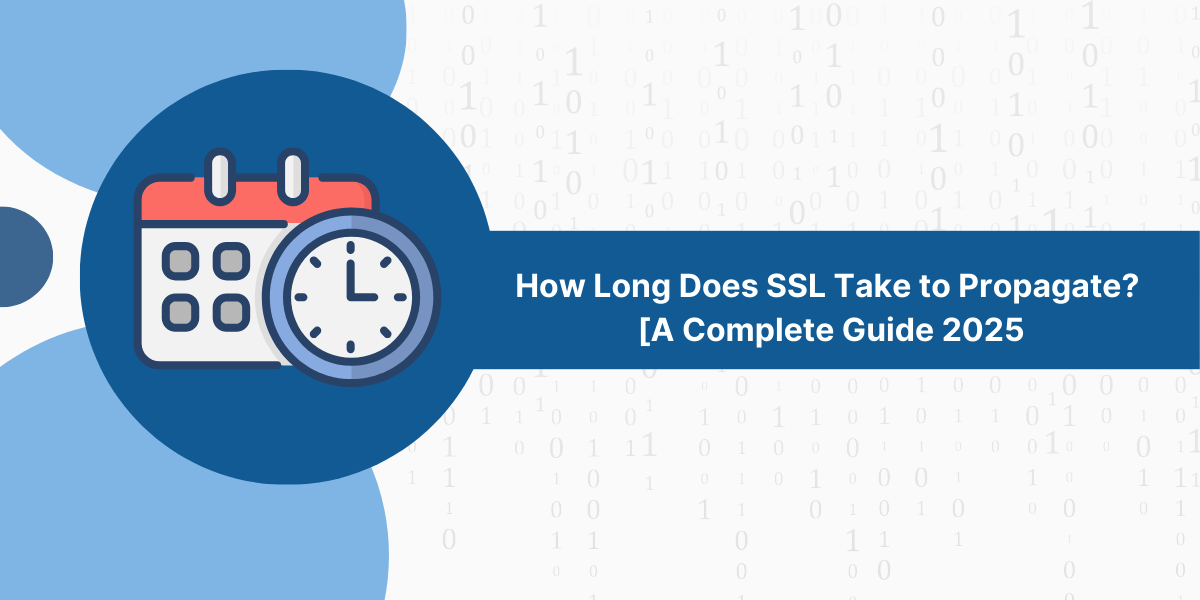SSL propagation is the process where your newly installed certificate becomes active across all servers and networks. This delay occurs because DNS changes, server configurations, and browser caches need time to update. Understanding propagation helps prevent security warnings and ensures a smooth HTTPS transition for your website visitors and search rankings.
What Is SSL Propagation?
SSL propagation represents the duration it takes for a certificate to activate after deployment.
SSL propagation refers to the time required for:
- The Certificate Authority (CA) to issue the certificate.
- Your web server to install and recognize it.
- DNS changes to update globally.
- Browsers and CDNs to cache the new SSL status.
During propagation completion some visitors will encounter security alerts.
Factors Affecting SSL Propagation Time
Four key elements influence propagation speed:
1. Certificate Authority (CA) Processing Time
- DV SSL (Domain Validation SSL): Minutes to a few hours (automated verification).
- OV SSL (Organization Validation SSL): 1–3 business days (manual checks).
- EV SSL (Extended Validation SSL): Up to 5 days (strict vetting).
2. DNS Propagation Delays
- The propagation speed depends on TTL (Time-to-Live) when you modify DNS records during a host switch.
- The majority of ISPs require between 1–24 hours for default TTL but some need up to 48 hours.
3. Server & CDN Caching
- Servers (Apache, Nginx) may need a restart.
- CDNs like Cloudflare cache SSL- purge cache to speed up updates.
4. Browser & Device Cache
- Users will continue to see outdated warnings until they delete or clear cache or their devices refresh DNS.
Typical SSL Propagation Times
|
SSL Type |
Issuance Time |
Full Propagation Time |
|
DV SSL |
5 min – 2 hrs |
1–24 hours |
|
OV SSL |
1–3 days |
1–3 days |
|
EV SSL |
3–5 days |
3–5 days |
|
DNS Changes |
N/A |
Up to 48 hours |
How to Check SSL Propagation
Verify propagation using:
- Online Tools like SSL Checker Tool
- Command Line:
openssl s_client -connect yourdomain.com:443 -servername yourdomain.com
- Browser Check: Chrome → DevTools (F12) → Security Tab → View certificate details
These methods confirm certificate installation, chain validity, and global accessibility, helping identify lingering issues.
Speeding Up SSL Propagation
Reduce delays by:
- Before installation, set DNS TTL to 300 seconds.
- Restarting web servers (Apache/Nginx)
- Purging CDN and browser caches
- Using staging environments for testing
Preventive measures can reduce propagation time by 50% or more.
Common SSL Issues & Solutions
| Issue | Solution |
| “Not Secure” warnings | Clear browser cache, fix mixed content |
| Certificate errors | Verify chain installation |
| Delayed activation | Check DNS propagation status |
| Most problems resolve within 48 hours automatically. |
Final Thoughts
While SSL propagation can’t be eliminated, strategic planning reduces delays. Focus on DNS TTL adjustments, cache management, and CA selection to ensure seamless HTTPS transitions. Most sites achieve full propagation within 24-48 hours following these guidelines.
FAQs About SSL Propagation
Why is my SSL certificate not working immediately after installation?
SSL propagation takes time due to DNS caching, server configurations, and CA processing. Wait up to 48 hours for full activation.
How can I force SSL to propagate faster?
Lower DNS TTL beforehand, clear server & CDN cache, and restart your web server.
Why do some users see “Not Secure” while others don’t?
Browser and ISP caching varies—some users may need to clear their cache or wait for DNS updates.
Does SSL propagation affect SEO?
Temporary SSL errors can impact rankings. Use 301 redirects (HTTP → HTTPS) and fix mixed content issues quickly.
Can I use my website during SSL propagation?
Yes, but some users may experience security warnings until propagation completes.
How do I know if my SSL is fully propagated?
Use tools like SSL Checker or check via command line (openssl commands).
Why does EV SSL take longer to propagate?
Extended Validation requires manual business verification, adding 3–5 days to issuance.
Will changing my hosting provider delay SSL propagation?
Yes, DNS changes can take up to 48 hours. Lower TTL before migrating to reduce downtime.
Can a CDN speed up SSL propagation?
Some CDNs (like Cloudflare) offer Universal SSL, which activates HTTPS instantly.
What should I do if SSL doesn’t work after 48 hours?
Contact your CA or hosting provider—there may be a misconfiguration in the certificate chain.

Priya Mervana
 Verified Web Security Experts
Verified Web Security Experts
Priya Mervana is working at SSLInsights.com as a web security expert with over 10 years of experience writing about encryption, SSL certificates, and online privacy. She aims to make complex security topics easily understandable for everyday internet users.



